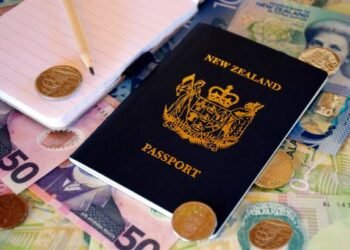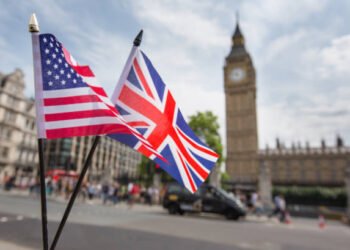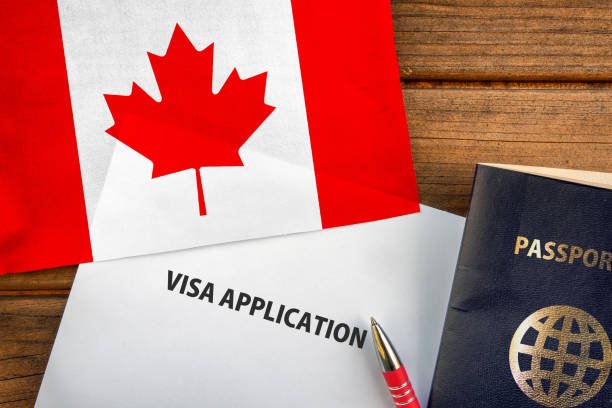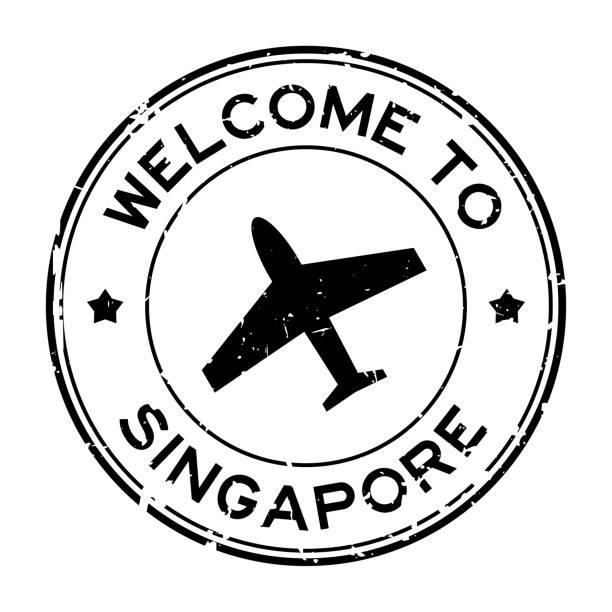Why Immigration Applications Fail
Advertisement
Immigration to the USA or the UK has always been viewed as an opportunity for career advancement, education, or permanent settlement. However, thousands of applications are rejected annually because common mistakes are repeated by applicants. Many of these errors could have been avoided with proper awareness.
In this my guide, I have provided the most frequent 20 mistakes Peoples Make. These mistakes will be examined, comparisons will be made between USA and UK immigration processes, and practical strategies will be provided to help applicants avoid them.
Advertisement
Mistake 1: Submitting Incomplete Documentation
In the USA
It is often found that applicants submit forms without including all the necessary supporting documents. For instance, when applying for a U.S. work visa (H-1B, L-1, or O-1), failure to provide employment contracts, degree certificates, or proof of professional experience leads to delays or outright rejection.
In the UK
Applicants for UK visas such as Skilled Worker, Student Visa, or Family Visa frequently forget documents such as TB test certificates, CAS letters, or financial proof. Since the UK Home Office has a strict document-checking system, even small omissions result in refusals.
How to Avoid
- All official checklists should be followed carefully.
- Documents should be double-checked before submission.
- Certified translations should be provided for non-English documents.
Mistake 2: Misunderstanding Financial Requirements
In the USA
It has been observed that student visa applicants (F-1 visa) often underestimate the proof of funds required. Bank statements showing insufficient funds usually lead to rejections, as U.S. consular officers expect students to demonstrate they can cover tuition and living expenses.
In the UK
For UK student visas, funds must be held for at least 28 consecutive days in a bank account. Applicants mistakenly provide statements that do not meet this requirement, resulting in refusals.
How to Avoid
- U.S. applicants must ensure funds cover tuition and at least one year of living expenses.
- UK applicants must maintain the correct bank balance for 28 days before applying.
Mistake 3: Choosing the Wrong Visa Category
In the USA
Applicants often apply for a tourist visa (B-2) when they intend to study or work, which results in rejection.
In the UK
Applicants sometimes apply for a Visit Visa while actually intending to seek employment or long-term stay. The UK’s strict visa purpose-checking results in immediate denial.
How to Avoid
- The correct visa type should always match the purpose of travel.
- Consultation with immigration experts should be considered before applying.
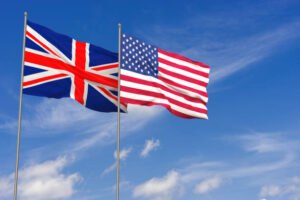
Mistake 4: Providing False or Misleading Information
In the USA
It has been found that some applicants exaggerate financial status or present forged academic credentials. When detected, this leads to permanent bans.
In the UK
Submitting falsified payslips or work reference letters is common. UKVI (UK Visas and Immigration) has advanced verification systems, which makes this risky.
How to Avoid
- All information must be accurate and verifiable.
- If in doubt, applicants should disclose rather than conceal.
Mistake 5: Failing to Meet English Language Requirements
In the USA
The U.S. does not always require a standardized English exam, but student visa applicants often fail their university’s internal requirement, leading to denial of admission and visa.
In the UK
Most UK visas require IELTS or equivalent. Applicants frequently sit the wrong version (e.g., Academic instead of UKVI Academic), causing delays.
How to Avoid
- Proper English proficiency tests should be booked.
- Test certificates should be valid and within required bands.
Mistake 6: Ignoring Country-Specific Immigration Rules
In the USA
Many assume that visa rules are uniform across states. However, while the visa is federal, state laws may affect settlement, employment rights, and taxation.
In the UK
Immigrants sometimes fail to check whether their employers are licensed sponsors. Without sponsorship, visas cannot be issued.
How to Avoid
- Employer sponsorship status should always be verified on the UK government website.
- Applicants should research both federal and state-level rules in the U.S.
Mistake 7: Overstaying Previous Visas
In the USA
Overstaying a U.S. visa by even one day can lead to a three-year ban. Longer overstays may result in a ten-year ban.
In the UK
The UK also imposes strict bans (from 1–10 years) for overstaying. Applicants frequently underestimate how these bans impact future visa chances.
How to Avoid
- Exit before visa expiry.
- Apply for extensions in advance.
Mistake 8: Weak Statement of Purpose (SOP) or Cover Letter
In the USA
For student visas, the Statement of Purpose plays a vital role. Generic or poorly written SOPs make officers doubt the applicant’s seriousness.
In the UK
A poorly structured personal statement for a Student Visa often results in refusal, especially if the intention to return home after studies is unclear.
How to Avoid
- Clear, concise, and personalized SOPs should be submitted.
- Career goals should be linked to chosen courses and jobs.
Mistake 9: Depending on Unverified Agents
In the USA
Fraudulent agents mislead applicants by guaranteeing visas. Many fall victim to scams.
In the UK
Unauthorized agents often overcharge and submit incomplete forms. Applicants are left responsible for refusals.
How to Avoid
- Only certified immigration lawyers or OISC-registered advisors in the UK should be used.
- The U.S. Department of State’s official site should be trusted.
Mistake 10: Ignoring Health and Medical Requirements
In the USA
Certain vaccines are mandatory. Applicants often ignore these until the last moment, delaying processing.
In the UK
For applicants from certain countries, a Tuberculosis (TB) test certificate is mandatory. Forgetting this leads to automatic refusal.
How to Avoid
- All medical tests should be done before submission.
- Guidelines from embassies should be followed.
Mistake 11: Insufficient Proof of Home Ties
In the USA
Tourist visa applicants frequently fail to show ties to their home country, leading to suspicions of intent to overstay.
In the UK
Similar issues arise, especially with Visit Visa applicants. Lack of job, family, or property evidence leads to rejection.
How to Avoid
- Property ownership, employment, and family evidence should be included.
- Strong reasons for return must be demonstrated.
Mistake 12: Poor Interview Preparation
In the USA
The U.S. visa interview is crucial. Applicants often fail to answer confidently.
In the UK
While UK interviews are less common, credibility interviews for students are strict. Weak answers lead to refusal.
How to Avoid
- Practicing common questions is essential.
- Answers should be concise and honest.
Mistake 13: Ignoring Timelines
In the USA
Applicants sometimes wait until the last minute. With U.S. processing times being long, deadlines are missed.
In the UK
The same occurs, especially during peak academic sessions.
How to Avoid
- Applications should be made months in advance.
- Processing times should be checked on official websites.
Mistake 14: Not Understanding Visa Sponsorship Rules
In the USA
Work visa applicants often misunderstand that sponsorship must come from a licensed employer.
In the UK
Skilled Worker Visa applicants also fail to check if the employer has a sponsorship license.
How to Avoid
- Employer eligibility should be verified before accepting a job offer.
Mistake 15: Applying with a Weak Job Offer
In the USA
Fake job offers or employment letters with vague details cause refusal.
In the UK
The Home Office carefully checks salary levels. If the offered salary is below the threshold, refusal is guaranteed.
How to Avoid
- Only genuine and eligible job offers should be pursued.
Mistake 16: Ignoring Dependents’ Requirements
In the USA
Applicants sometimes fail to prove they can financially support dependents.
In the UK
Dependents’ visa requirements are also strict, especially financial proof.
How to Avoid
- All dependent documents must be properly prepared.
Mistake 17: Misunderstanding Visa Conditions
In the USA
Working beyond permitted hours on a student visa is a common error.
In the UK
Students often mistakenly work more than the allowed 20 hours per week.
How to Avoid
- Visa restrictions must be respected at all times.
Mistake 18: Lack of Travel Insurance
In the USA
Travel insurance is sometimes overlooked, but emergencies can create financial problems.
In the UK
The NHS is not free for all categories. Without insurance, expenses become overwhelming.
How to Avoid
- Insurance should always be arranged before travel.
Mistake 19: Relying on Assumptions Instead of Research
In the USA
Applicants sometimes assume rules are similar to their friends’ cases.
In the UK
Many assume previous approvals guarantee theirs.
How to Avoid
- Research from official sources must be prioritized.
Mistake 20: Not Seeking Legal Help When Needed
In the USA
Complex immigration cases (such as asylum or waivers) require lawyers, yet applicants often apply alone.
In the UK
Appeals and reconsiderations also require professional help.
How to Avoid
- Legal assistance should be considered when applications are complex.

Comparison Table: USA vs UK Immigration Opportunities & Application
| Category | USA Immigration | UK Immigration | Competitive & Comparative Notes |
|---|---|---|---|
| Visa Sponsorship Opportunities | H-1B, EB-3, EB-5, Seasonal Work Visa; Employers actively sponsor in IT, healthcare, engineering, and academia. | Skilled Worker Visa, Health and Care Visa, Global Talent Visa; Employers sponsor mainly in healthcare, education, finance, and IT. | USA offers wider visa categories, but UK visas are more streamlined and easier to apply for online. |
| High-Paying Jobs | Technology ($100k+), Healthcare ($90k+), Engineering ($80k+), Finance ($120k+). | Healthcare (£30k–£70k), IT (£40k–£90k), Finance (£50k–£100k), Teaching (£28k–£50k). | Salaries are higher in the USA, but cost of living in the UK can balance earnings. |
| Ease of Immigration Process | Long waiting times; strict quota limits (e.g., H-1B lottery). | Faster processing (4–12 weeks for Skilled Worker Visa). | UK process is simpler and less time-consuming. |
| Permanent Residency (PR) Pathway | Green Card after 5–7 years (depending on visa). | Indefinite Leave to Remain (ILR) after 5 years. | Both offer pathways, but UK is generally quicker for PR eligibility. |
| Cost of Visa Application | H-1B: $460–$700 (excluding employer costs), EB-5: $3,675 filing fee plus investment requirement. | Skilled Worker Visa: £625–£1,423 plus Immigration Health Surcharge. | UK is less costly upfront, USA requires higher investment for some categories. |
| Healthcare Access | Employer-sponsored insurance or private insurance (average $5,000–$10,000/year). | NHS coverage after paying Immigration Health Surcharge (~£624/year). | UK provides cheaper and universal healthcare; US healthcare is expensive but high quality. |
| Job Market Demand | Strong in tech, healthcare, finance, engineering. | Strong in healthcare, IT, construction, teaching. | Both have high demand, but USA tech industry dominates while UK is healthcare-driven. |
| Settlement Benefits | Higher salaries, global opportunities, diverse communities. | Work-life balance, free healthcare, easier mobility within Europe. | USA is financially rewarding, UK offers better social benefits. |
| Cultural Integration | Multicultural with vast immigrant population, but integration varies by state. | Highly multicultural, especially in London, Manchester, Birmingham. | Both are welcoming, but UK has smoother integration policies. |
| Cost of Living | High in cities like New York, San Francisco; cheaper in rural states. | High in London, moderate in other cities like Leeds, Manchester. | Both expensive in capitals, but USA offers cheaper alternatives in smaller states. |
Conclusion: Comparing USA and UK Immigration Mistakes
It has been observed that although both the USA and UK maintain strict immigration systems, the reasons for rejection are often similar. Most mistakes arise from incomplete documents, weak financial proof, false information, or poor preparation.
By avoiding these 20 mistakes, applicants increase their chances of approval significantly. Both countries reward accuracy, honesty, and preparation, while penalizing dishonesty and negligence.


